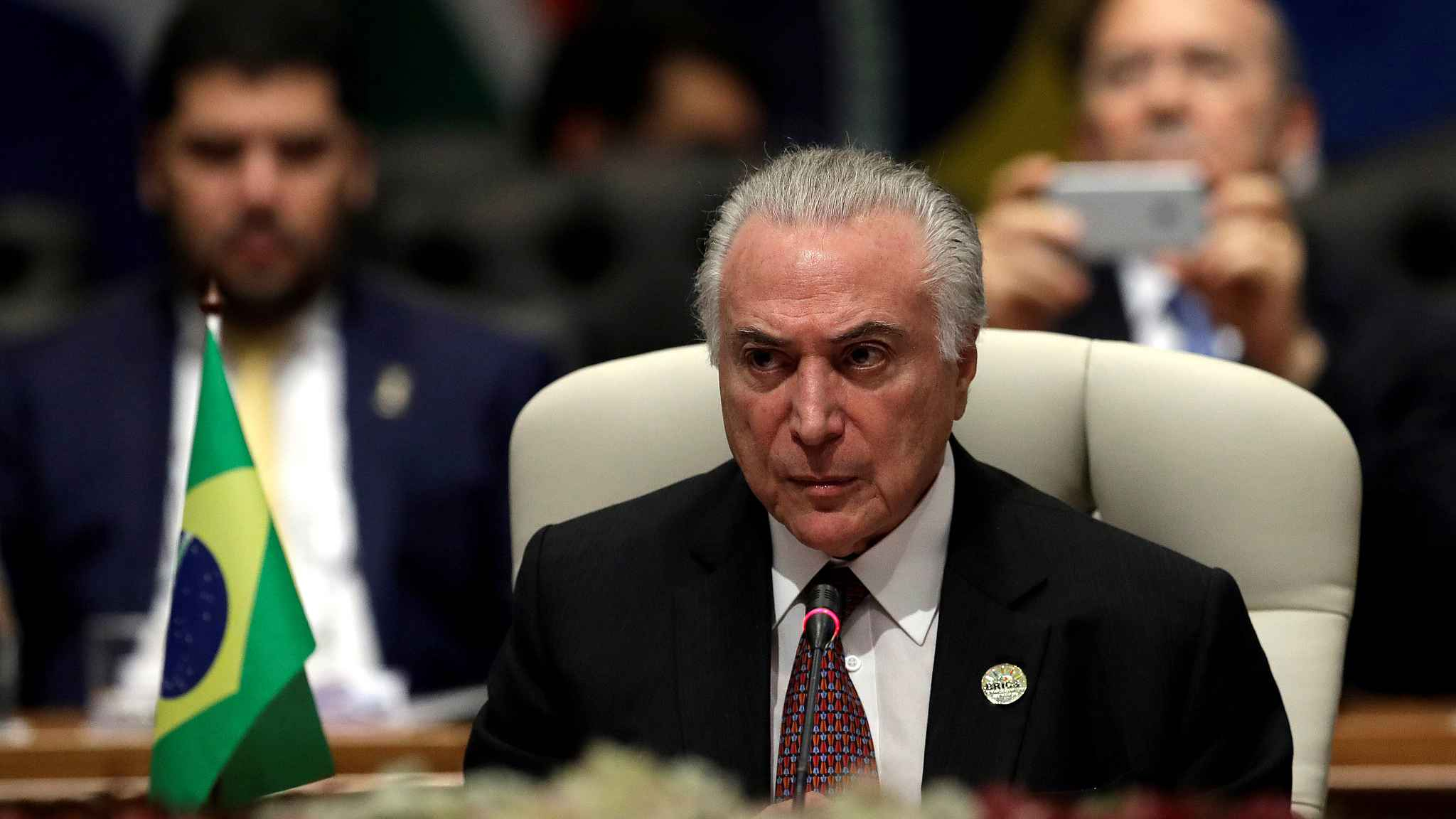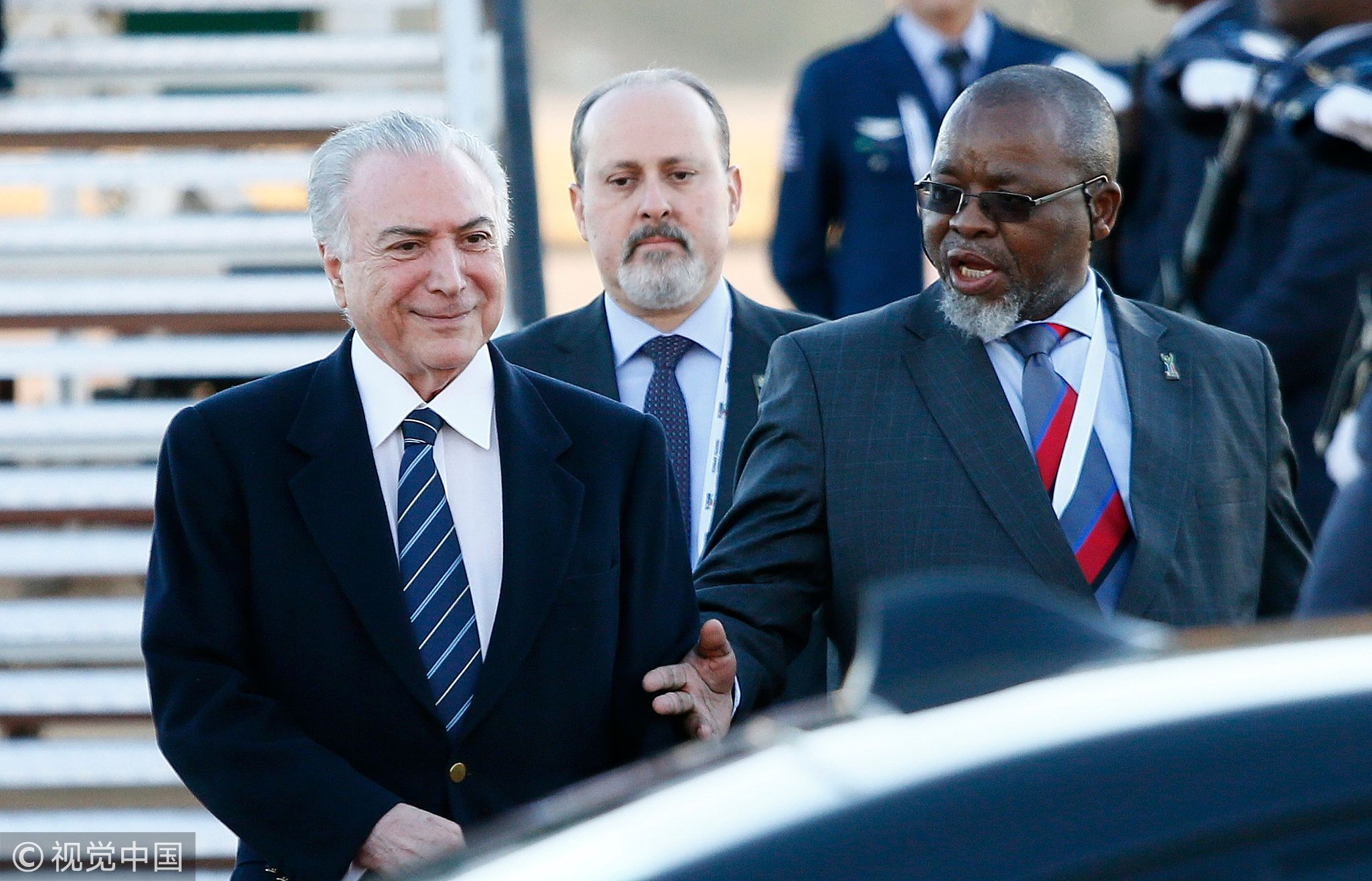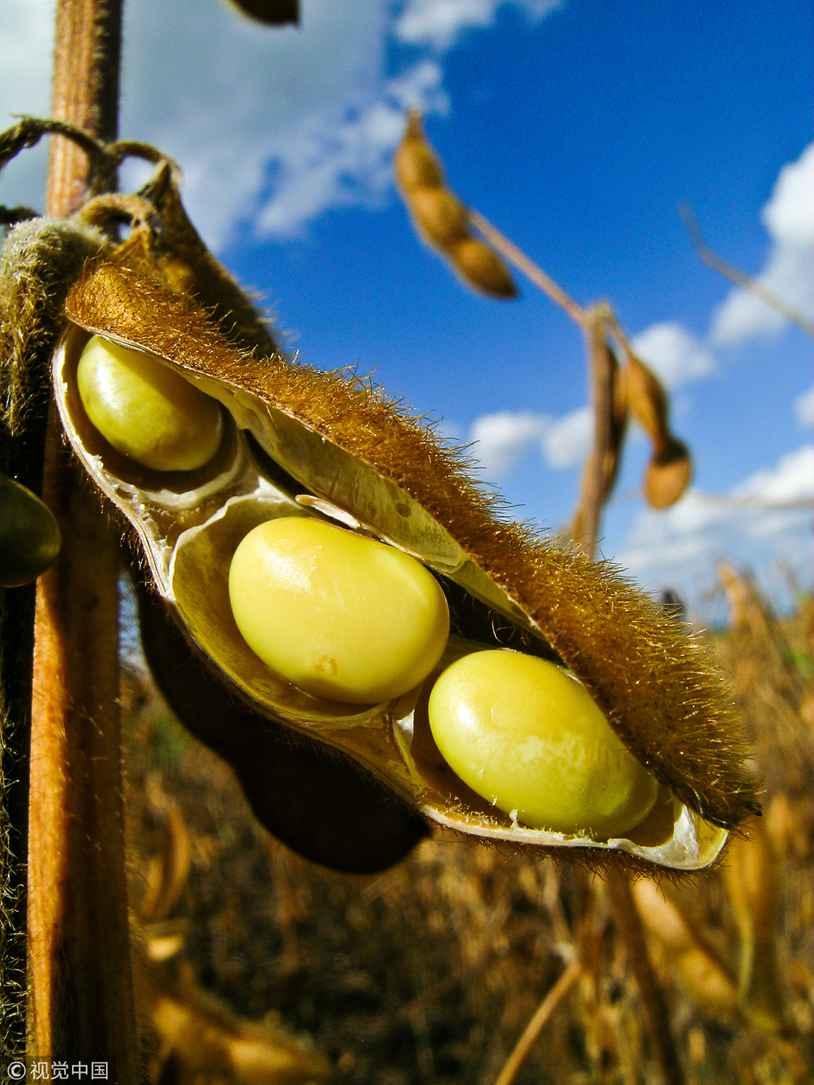
Opinions
17:52, 27-Jul-2018
Opinion: BRICS offers a golden opportunity for Brazil
Updated
17:08, 30-Jul-2018
CGTN

Editor’s note: Lyu Yang is an assistant research fellow at the Institute of Latin America Studies under the China Institutes of Contemporary International Relations. The article reflects the author's opinion, and not necessarily the views of CGTN.
The 10th BRICS Summit is taking place in Johannesburg, South Africa. As a leading representative for emerging economies in Latin America and the next BRICS presidency, Brazil sees the summit as an opportunity to deepen its cooperation with other developing countries and assume a more prominent role in the organization.
Ten years after founding the mechanism together with China, Russia and India, Brazil still attaches great importance to BRICS, not only is it a manifestation of Brazil’s status as a regional leader and a global power, but also an indispensable tool to achieve better developments.
In terms of bilateral relations, Brazil has established strategic partnerships with all the other four members and maintains an important trade and investment cooperation with each.
Multilaterally, the South American country was able to explore a “new-era relationship” with developing countries in Asia and Africa via the “BRICS+” mechanism.
What’s more, with the creation of a joint development bank, tens of yearly minister-level intra-BRICS meetings, and close cooperation on issues ranging from IMF reform to counterterrorism, BRICS provides Brazil with an opportunity to participate in global governance on a broader stage.
Brazil is not only the world’s ninth biggest economy but also a regional leader who is willing to speak for Latin America – a prospering continent with 25 middle-income countries. Emerging markets like Mexico, Chile, Peru and Colombia are experiencing fast economic growth, a relatively higher level of industrialization and a more openness.
These comparative advantages make their economies highly complementary with other developing countries in Asia and Africa, which creates opportunities for further cooperation within the southern countries.

Brazilian President Michel Temer (L) arrives at the Waterkloof Air Force Base on July 25, 2018, in Pretoria, South Africa, to attend the 10th BRICS Summit. /VCG Photo
Brazilian President Michel Temer (L) arrives at the Waterkloof Air Force Base on July 25, 2018, in Pretoria, South Africa, to attend the 10th BRICS Summit. /VCG Photo
Traveling across oceans and continents, President Temer’s first goal in Johannesburg will be strengthening the Brazil-Africa relationship. Brazil supported the independence movements in Africa in the 1960s and has since maintained a good relationship with the continent.
Brazil is a major industrial country in South America, with advantages in the automobile and aviation industries. By using the platform of the BRICS Summit, the biggest economy in Latin America can explore business opportunities in the agro-industry or manufacturing industry with African countries, which fits perfectly with the theme of the summit: “BRICS in Africa: Collaboration for Inclusive Growth and Shared Prosperity in the 4th Industrial Revolution.”
The second goal is to keep improving the relationship with other member states, especially with China. The Asian giant is now Brazil’s No.1 trading partner and one of the most important FDI (foreign direct investment) providers. The Brazilian government should be willing to expand the bilateral economic ties to stimulate its slowly recovering economy, especially as the soybean industry faces a trade war.

Brazilian soybeans /VCG Photo
Brazilian soybeans /VCG Photo
Apart from talks with China, Brazil is also interested in exploring cooperation in agriculture with Russia and India, and becoming more active in strengthening ties with South Africa.
The third and the most important goal for Brazil at this summit is to take a clear stand, along with other participating states, against uprising protectionism.
Though Brazil has a relatively lower openness index compared to other emerging markets in Latin America, Trump’s “America First” policy still poses a severe threat to its economic interests far more than tariffs on Brazilian steel.
The anxiety about protectionism may spread in the Western world as other developed countries are likely to impose limits of their own to keep global shipments intended for the US from flooding their markets, not to mention the side effects caused by a reduction in global investments that may hinder the economic performance of all developing countries. Therefore, President Temer will certainly join hands with the other four leaders to consolidate the members’ relations by reducing tariffs and non-tariff barriers. This might boost trade and investment between the countries and send a clear signal against protectionism.
After South Africa, Brazil will take up the new BRICS presidency in 2019. As the founder and an active promoter of the BRICS mechanism, both the current summit in South Africa and the 2019 summit in Brasilia are unique opportunities for all.
For the grouping of more than 10 years, the Brazilian diplomats have a good mediation tradition that may help solve internal disputes, like the establishment of the Secretariat or the expansion of BRICS.
For Brazil, it could use its position in the grouping to more effectively improve its bilateral relationship with China – by far the most important one it has with the BRICS countries. And for all Latin American countries, the BRICS summit provides a stage to play a more significant role in global governance.
By 2019, we will see a new Brazilian government hosting the BRICS summit. The president may change, but the country’s enthusiastic support for the grouping will never decrease, for BRICS offers a golden opportunity for all.

SITEMAP
Copyright © 2018 CGTN. Beijing ICP prepared NO.16065310-3
Copyright © 2018 CGTN. Beijing ICP prepared NO.16065310-3